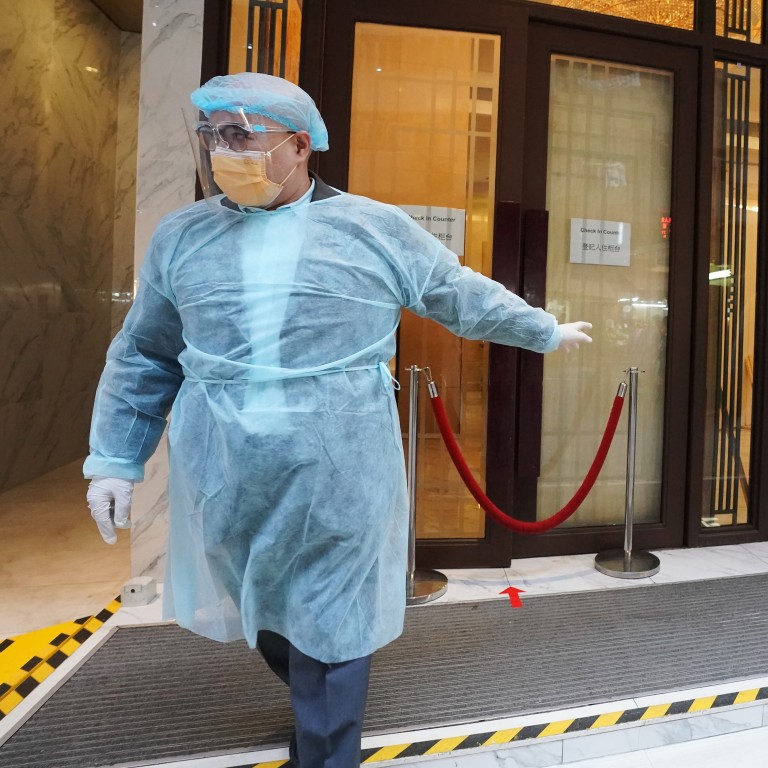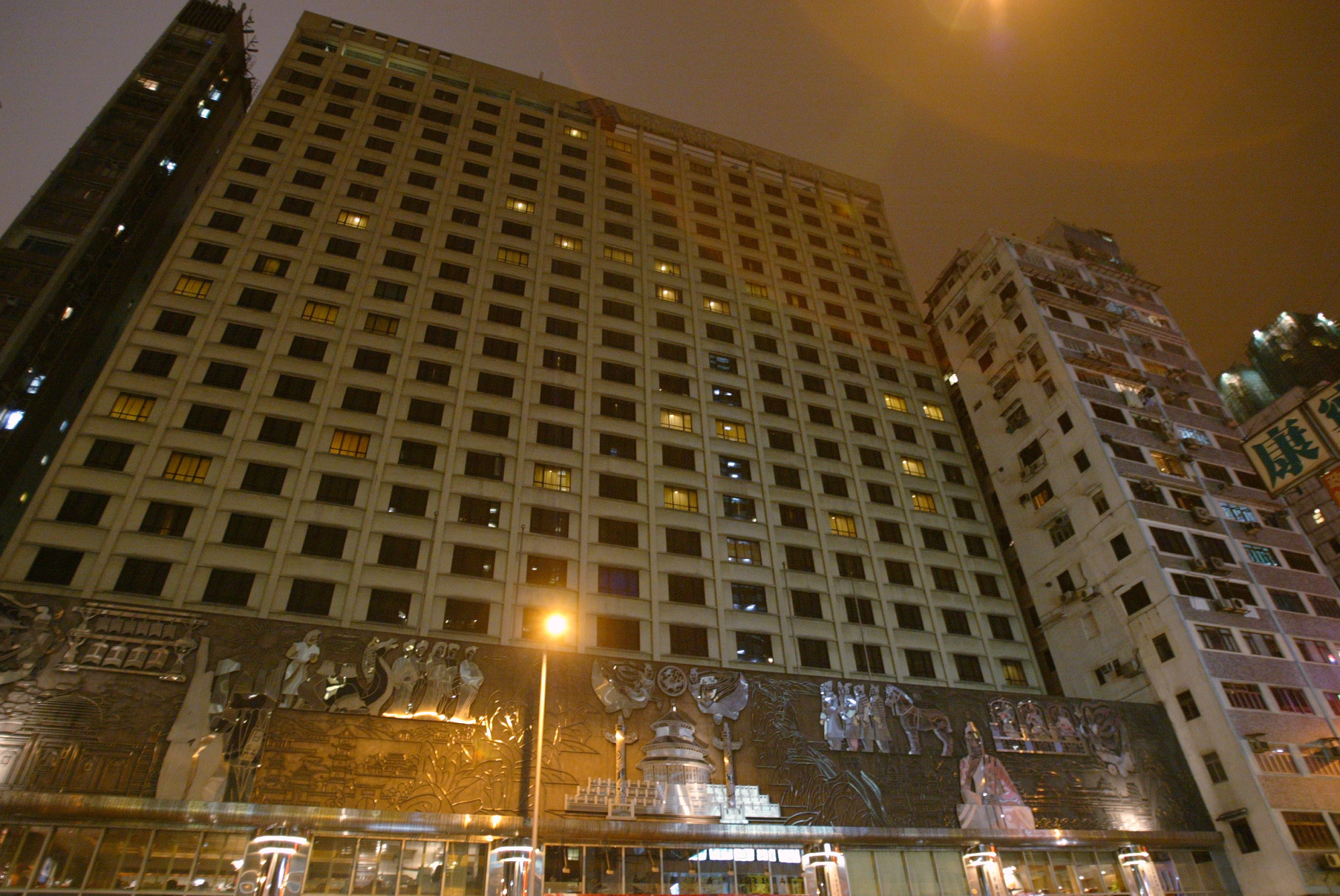
Coronavirus quarantine: Singapore pips Hong Kong in quantity and range of usable hotels, getting the edge in resuming travels
- More than 70 hotels in Singapore, or 26.3 per cent of the 266 in the city state, have served as SHN facilities since March 2020, according to the Singapore Tourism Board
- Hong Kong assigned 33 hotels, or 11 per cent of the city’s 312 licensed hotels, to serve as quarantine venues from June 20 until August 31
Singapore pips Hong Kong in quarantine facilities for visitors and returnees, an advantage that gives the city state the edge in resuming business travels to kick start the local economy.
One in every four Singapore hotels is usable as a facility for so-called stay-home notices (SHN), compared with one in 10 in Hong Kong, according to tourism and government officials of both cities. In absolute terms, Singapore’s SHN facilities are more than double the number of Hong Kong’s quarantine venues, even if the Lion City has 17 per cent fewer hotels than Hong Kong.
“Singapore’s system is more efficient and more convenient, especially if they can guarantee a decent room and a decent hotel,” said Banque Transatlantique’s Hong Kong managing director Hervé Guinebert, who used to travel to Singapore once or twice a year. The Frenchman booked a quarantine room at Hong Kong’s Regal Airport Hotel for his return to the city from a holiday in France at the end of June.
The comparison offers a crucial peek into the practicality of each city’s readiness to resume travelling, as increasing vaccination and a slowing in the spread of the coronavirus outbreak triggered discussions to reopen borders. The two cities twice postponed their so-called travel bubbles for travelling to resume between Hong Kong and Singapore.
More than 70 hotels in Singapore, or 26.3 per cent of the 266 in the city state, have served as SHN facilities since March 2020, according to the Singapore Tourism Board’s director of SHN operations Geraldine Yeo. The number of SHN facilities depends on demand, with various hotels activated as and when needed.
Inbound travellers pay fixed fees of between S$1,300 (US$970) and S$3,000 for meals and stay in assigned hotel rooms for the duration of their quarantine period of between 14 and 21 days. Guests also have the option to go up market for suites at the Fairmont Singapore, Swisshotel’s The Stamford or the InterContinental Roberson Quay, among others, which charge fees between S$5,000 and up to S$30,000 for the quarantine duration.
Hong Kong, with a larger population and more hotels, assigned 33 hotels, or 11 per cent of the city’s 312 licensed hotels, to serve as quarantine venues from June 20 until August 31, according to a government spokesman. Travellers must book their own rooms, and the short supply is casting a pall on visitors and returnees alike. Of the 28 hotels contacted by South China Morning Post, the Regal Airport Hotel, located next to the city’s airfield in Lantau, was the only venue with rooms available in June.
The number of available hotels increased by two compared with the previous cycle from April 21 until June 19. Still, that is barely enough for a city with 86,000 rooms across more than 300 hotels, which received 22,244 visitors in the first four months of 2021. The hotel industry has been hard hit by Covid-19, with arrivals plunging 94 per cent to 3.6 million in 2020, a far cry from the 65.1 million recorded in 2018.
“We alerted the government about the issue based on input from our members,” said George Leung, chief executive officer at the Hong Kong General Chamber of Commerce (HKGCC). “We believe the government will assess the situation and negotiate with potential suppliers of hotel rooms to address the shortages.”
Hotels that join the Hong Kong government’s quarantine scheme are guaranteed an income, which is a boon amid plunging tourism visits to the city. Still, staycation is on the rise in Hong Kong, as families replace their overseas trips with stays around the city, bolstering the occupancy of some high-end venues to between 25 per cent and 45 per cent.
That presents hoteliers with a dilemma: to forego the guaranteed income or put up with the stigma associated with any outbreaks or infections on their premises, analysts said.
“Upscale hotels have a lot of factors to consider whether they want to become a quarantine hotel or not,” said Emily Leung, senior analyst at market research firm Euromonitor International. “Hong Kong’s staycation market is definitely on the move, so if customers find out that a hotel is a quarantine venue, will they still use it for staycation? It actually puts up a barrier for them.”
Hong Kong’s hoteliers don’t need a particularly long memory to recall the experience of the Metropole Hotel in Mongkok, which became ground zero of the 2003 outbreak of the severe acute respiratory syndrome, or Sars. A visitor from southern China’s Guangzhou city stayed overnight at the four-star hotel, where the disease spread to 13 tourists from Singapore and Canada. The event that precipitated the city’s sole property bear market in three decades was seared in Hong Kong’s collective memory, forcing the hotel to undergo a renovation and rebranding to become the Metropark Kowloon.

“Joining the quarantine scheme guarantees secured revenue for a couple of weeks or months, but [the designated hotel] might damage its brand image and lose out to competitors” when the post-coronavirus tourism and travelling resume,” Leung said. “Hong Kong people are very careful,” and “the choice between a luxury experience and a quarantine hotel” gives the former the advantage in a highly competitive market, she said.
To be sure, the shortage of available rooms has hindered the resumption of business travelling, a vital aspect of keeping Hong Kong relevant as Asia’s financial hub. Hoteliers are urging local authorities to designate more hotels for quarantine.
“Our federation has contacted the government to release more blocked-off rooms for booking under the designated quarantine hotel scheme mechanism,” said Winnie Chan, association manager at The Federation of Hong Kong Hotel Owners, with 94 members including the Four Seasons in Central and the Dorsett in Kwun Tong. “The government reserves the right to request hotels to make all or some of these [blocked-off] rooms available for booking. This can help meet the high demand and also help Hong Kong business to pick up again.”
The federation’s members are interested to join the government’s quarantine scheme, but have not been selected, she said. “They are willing to cooperate with the government,” Chan said. “We will continue monitoring the situation.”

